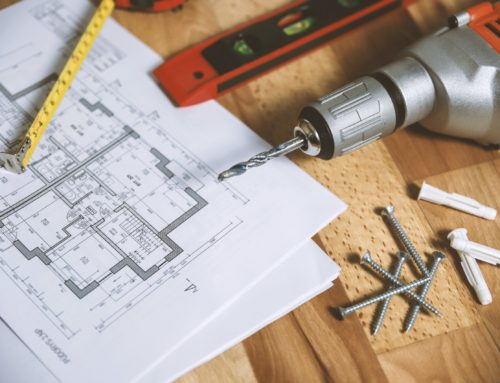I was catching up with a friend of mine who was laid off one time. She’s been interviewing here and there without finding a position she really like. Boy was I glad I caught up with her and got her out of the house that day. During our time together she mentioned “hey, what do you know about flipping houses? I’ve been watching this show on HGTV and it seems pretty doable.” It was definitely a bit of a face palm moment and I walked her through the risk/reward before she did something that could hurt her financially.
Reality TV definitely makes it looks easy. You buy a property, demo it, and 30 minutes and 10 commercials later you have a brand new house when in fact it’s much more involved than that. Also HGTV’s math is… well, let’s just call it fuzzy. If you are thinking about buying a fixer-upper whether to live in yourself or as a flipper, be sure to look out for the following red flags:
1. STructure
Houses back in the day valued privacy, which is why you see many parts of the house like the kitchen walled up. In order to achieve the open floor plan look and feel buyers like today, you might have to open up a wall or move/add support here and there. Think of it like Jenga–you pull a support out of the wrong place and d’oh, down goes the roof or the house. Not to mention structure work is often very expensive. Make sure you have a licensed professional to take a look if a wall is load bearing or not if you are thinking about taking it out before you close on a property. If structural work has been done it’s worth the effort to check with the city if it was done with proper permit.
2. FOUNDATIONS or crawlspaces
If the inspection report or during my walk through I see wet or damp crawlspace my little alert tentacles will start buzzing. It could be an easy fix like clogged drainage or some tweaking with the gutter and run off but often it’s a crack in the foundation walls or something way worse that’s going to cost tens of thousands of dollars to fix. All that water could have also caused damage or mold in the walls. Other than that I’m looking to see if there’s cracks in the foundation or what kind of material it was made. Concrete slab is the most common now but if the foundation is on brick they tend to shift which could mean costly repairs.
3. in-law units or ADDITIONS
Additions are a great way to add space to an existing home, but when they’re done without permit it could lead to subtractions in your bank account. Every local agency is different but if an inspector finds out, he could ask you to redo the foundation and all the electrical, HVAC, plumbing, to bring the space up to code.
4. ELECTRICAL
Electrical is prob my least favorite kind of work. It’s such an aggravating process. You have to make sure they’re grounded properly and you need GFCI outlet for kitchen and bathrooms along with whatever else your local code enforcement or fire department might require. Beware of any flickering lights, outlets or switches that don’t work, anything that looks discolored or have a burning smell.
5. Fresh Paint
If it looks too good to be true, better get an inspector. Often people use fresh paint to cover up something like water intrusion marks or mold. Take a closer look to see if there are saggy walls or ceilings in other spots of the house that could be related to a bigger problem, which leads me to…
6. Roof
Always ask about what kind of material the roof is and how old it is. Make sure it’s included in the inspection. If you need a new roof that’s going to easily blow your rehab budget. Most roofs use asphalt shingle and they last about 20 years. Tile roofs last longer, about 35-50 years depending on how the weather is in your area. If you get a lot of hail or harsh weather it’ll shorten the useful life of the roof.
7. ZONING LAWS
Look beyond the actual house itself. Consult with the local agency on the building code. It’s filled with requirements on how much square footage of a house is allowed, setbacks, angles of your roof etc. Check on the city’s website or anything the planning department has put out on potential changes in zoning or future development in the area.
Was this helpful? Send me a note and let me know. If you’re thinking about buying a fixer-upper or need referrals for an inspector, give me a call.







